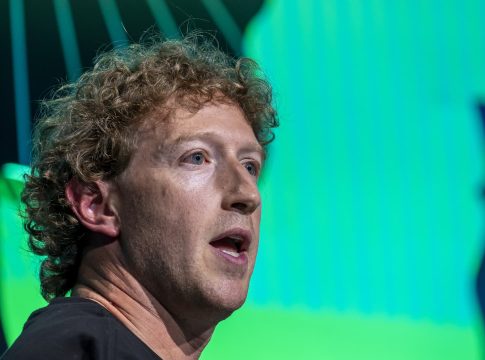Meta’s New AI Model: A Leap Toward Reality Understanding
A Strategic Move in AI
Meta Platforms, the tech behemoth behind social media giants like Facebook and Instagram, is aggressively advancing its artificial intelligence efforts. With fierce competition on the horizon from major players such as OpenAI, Microsoft, and Google, CEO Mark Zuckerberg is steering the company’s focus towards the development of innovative AI technologies.
Introducing V-JEPA 2: A New Dimension in AI
On Wednesday, Meta unveiled its latest AI model, V-JEPA 2, designed to grasp the intricacies of 3D environments and the dynamics of physical objects. This cutting-edge model falls under the category of "world models," which simulate reality to allow systems to learn and make informed decisions akin to human reasoning.
For instance, V-JEPA 2 can predict that a ball rolling off a table will inevitably fall off, or recognize that an object obscured from view hasn’t simply disappeared. This level of understanding could significantly enhance the capabilities of machines that require real-time environmental awareness, such as delivery robots and autonomous vehicles.
Real-Time Understanding Without Heavy Data Burdens
Unlike traditional AI models that depend heavily on vast amounts of labeled data or extensive video footage for training, V-JEPA 2 operates within a simplified “latent” space. This allows the system to reason about how objects interact and move without the need for granular visual data, presenting a more efficient method for training AI.
Backing the AI Revolution
As evidence of Meta’s commitment to this technological frontier, the company plans to invest $14 billion into AI firm Scale AI and hire its CEO, Alexandr Wang. This bold acquisition is expected to fortify Meta’s AI strategy, enabling it to stay competitive in an ever-evolving landscape.
Future Implications
The release of V-JEPA 2 comes at a pivotal time when the industry is abuzz with the potential of large-scale world models. Notably, AI researcher Fei-Fei Li has recently secured $230 million for a startup called World Labs, which aims to create sophisticated models that delve deeper into understanding physical structures. Meanwhile, Google’s DeepMind is also in the race, developing its own model named Genie, which is already being tested in dynamic environments.
The implications of these advancements are profound. As AI systems become more adept at mimicking human-like understanding of the physical world, their application spans multiple sectors—from logistics and transportation to healthcare and beyond.
A New Era for AI
As we move toward a future steeped in AI, innovations like V-JEPA 2 could redefine our interaction with technology, making it more intuitive and integrated into our daily lives. With major players heavily investing and competing in this space, we may be on the brink of a transformative era where AI not only enhances capabilities but also fundamentally changes how we engage with the world around us.

Writes about personal finance, side hustles, gadgets, and tech innovation.
Bio: Priya specializes in making complex financial and tech topics easy to digest, with experience in fintech and consumer reviews.

